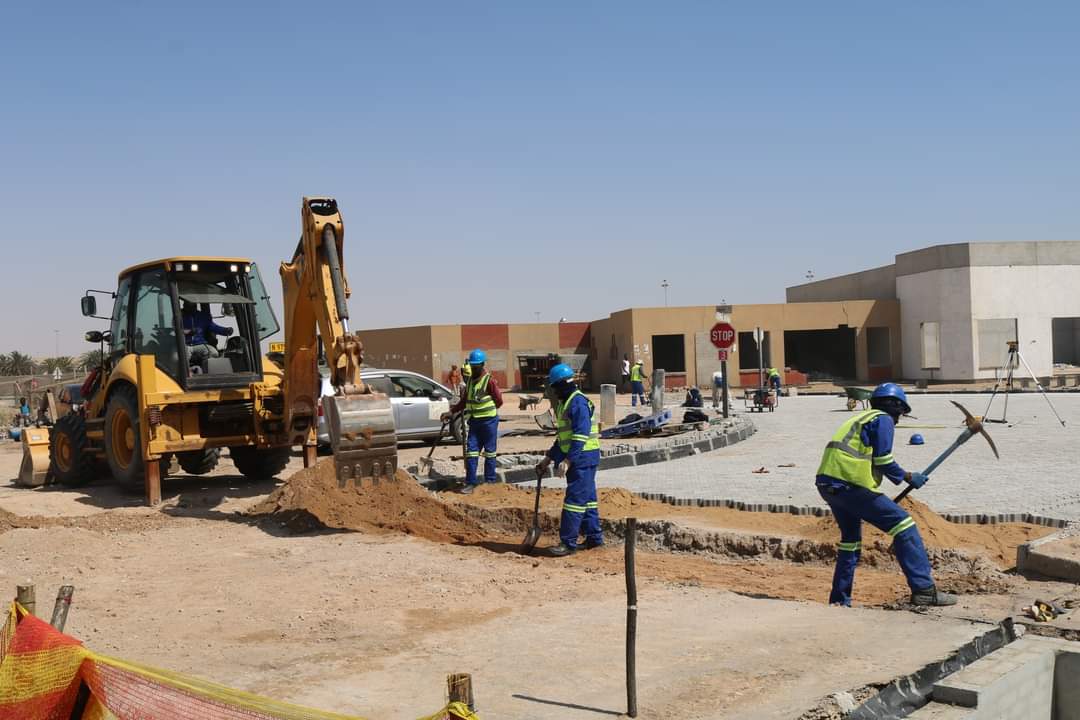GOVERNMENT’S attempts to prevent Namibians from going hungry because food has simply become too expensive or floods have destroyed their crops, are too slow, too ineffective and not well thought through, a local research tank has concluded.
As part of their paper for Trade Knowledge Network Southern Africa, the Namibian Economic Policy Research Unit (Nepru) has just released a brief on official steps to counteract the effects of climate change and rising food prices on national food security.Their analysis comes against the background of a statement by the United Nations Office for the Co-ordination of Humanitarian Affairs (OCHA) that at least 544 114 Namibians are at risk of long-term food insecurity this year and next year because of the floods in the North.According to OCHA, more than 78 293 subsistence farmers have lost both the crops in their fields and those they have harvested. The latest figures from MapAction, a non-governmental organisation based in the United Kingdom, show that at least 2 691 farmers in Caprivi are affected, with more than 12 000 hectares of fields destroyed.EARS, the satellite data service for water and food, estimates that Namibia’s national harvest this year will be 12 per cent less than last year.For those who can afford it, food is plentiful, but food inflation is stubbornly persisting at two digit-levels. The statistics for March show food inflation at 15,4 per cent.Exacerbating this already bleak scenario is the International Food Policy Research Institute’s (IFPRI) latest Global Hunger Index. The ranking, which rates food security in a country according to the level of child malnutrition, the rate of child mortality and the proportion of people who are calorie deficient, gave Namibia a point of 14,3. This, according to the IFPRI, means food insecurity is ‘serious’.Officially, 28 per cent of Namibians are poor, with four per cent extremely poor. Unemployment has reached about 37 per cent. However, for people between 20 and 24 years, unemployment is 58 per cent, Nepru says in its brief.’The strain is particularly tough on those few members of the extended family who indeed have stable work and are now no longer in a position to provide enough food for family members in need.’ Nepru points out that salary adjustments, following price increases, generally have a time lag of 12 months or more depending on the negotiations between employers and trade unions.’Therefore, the increased food prices have a direct negative effect on the disposable income of city and village dwellers,’ the unit continues.Nepru refers to Government’s decision to scrap value-added tax (VAT) on bread, bread and cake flour, beans, cooking oil and fat, sugar and milk as part of its relief measures, but questions its effectiveness.’The beneficiaries of this policy are those who account for most of the consumption of these products, and these are people who can afford it and not necessarily the most vulnerable in society,’ Nepru says.In addition, they question whether wholesalers and retailers are passing the full benefit on to the consumer.Nepru also looks at the school feeding programme and the Comprehensive Emergency Food Scheme, through which Government intends to distribute basic food items to the elderly, female-headed households, pregnant women and breastfeeding mothers, as well the disabled and children.’However, this programme has not yet been implemented and logistical problems in the distribution are foreseen by the Emergency Management Unit (EMU),’ they comment.Nepru furthermore scrutinises Government’s agricultural strategy like the Green Scheme.According to the plan, natural watercourses will be used to irrigate staple foods and high-value horticultural crops on small-scale and commercial farms. The Green Scheme allows for the establishment of 22 000 hectares of irrigation farms along the perennial rivers bordering Namibia.’So far, there has not been progress, as only 8 300 hectares have been included in the programme,’ Nepru remarks.Government’s plan to increase Namibia’s grain-storage capacity by building silos in all the northern regions to side-step changing food prices regionally and internationally also comes under fire.Nepru stresses that there is only one region in Namibia, namely Caprivi, that can be regarded as a surplus producer of maize and mahangu.’One can question whether the construction of silos is necessary in areas where the average production does not lead to a surplus of grain,’ Nepru says, adding that it is also expensive to store grain. Government should therefore do a cost-benefit analysis for the storage versus the import of grain, they suggest.The importance of title deeds for subsistence farmers is also highlighted. Small-scale farmers need these so that they can use their land as collateral for loans from Agribank or even commercial banks. This will enable farmers to extend and streamline their farming operations and to buy more land.Currently, farmers receive licences that give them permission to farm on communal land, but banks do not accept these as collateral.’Because of this, the current legal situation of farmers is an obstacle to further investments and growth in the agricultural sector,’ Nepru maintains. They also feel that small-scale farmers are neglected when it comes to empowering them with relevant market information.jo-mare@namibian.com.na
Stay informed with The Namibian – your source for credible journalism. Get in-depth reporting and opinions for
only N$85 a month. Invest in journalism, invest in democracy –
Subscribe Now!










